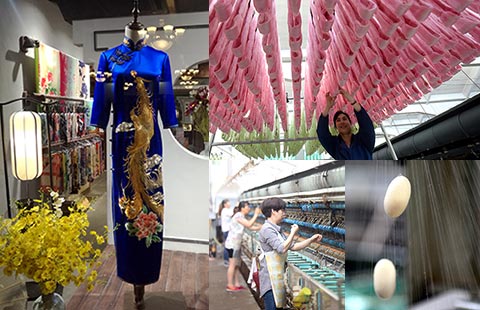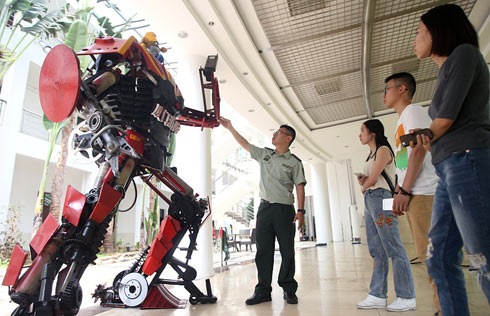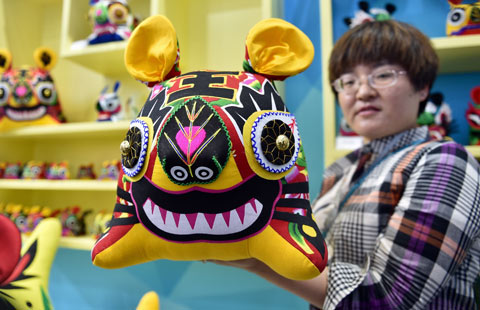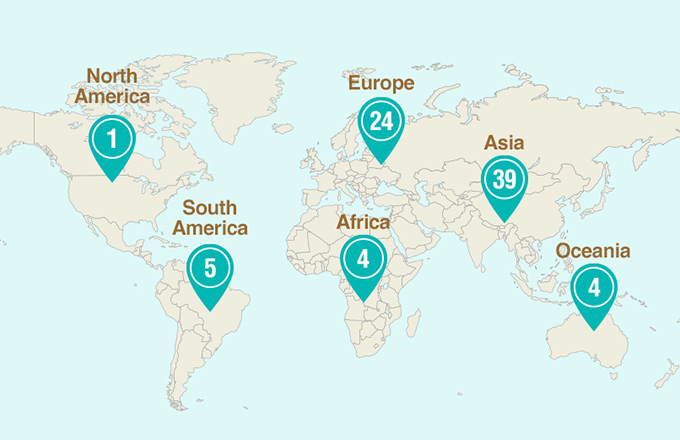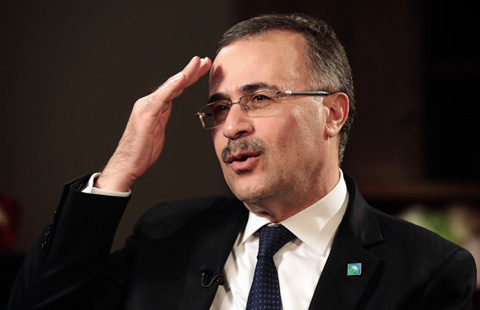Foreign companies adapt to China's changing retail landscape
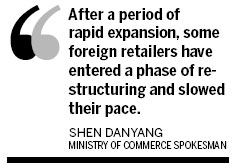
Rising costs, growing impact of e-commerce pressure overseas firms
Foreign retailers in China are changing their strategy in the nation amid fierce competition, rising costs and consumers' changing demand, Ministry of Commerce spokesman Shen Danyang said on Thursday.
Both foreign retailers and their local counterparts are facing heated competition as China's retail market keeps expanding. The recent closures and mergers among foreign retailers, especially in the home appliance and building materials retail sectors, are the result of "normal" competition, Shen told a news briefing.
Last year, the world's largest convenience store retailer, 7-Eleven, confirmed store closures in Guangzhou, capital of Guangdong province.
Even the world's largest retail giant by sales, Wal-Mart Stores Inc, closed two stores in Wuxi and Shenzhen - the location of its China headquarters - in April after a business appraisal.
Home Depot Inc closed all seven of its remaining stores in China last September after years of financial losses, while Best Buy Co closed its nine outlets in the country in early 2011, after having discovered that its Western business model didn't work well in China.
In addition to store closures, other foreign retailers have slowed their expansion in the nation.
Wal-Mart said it plans to open around 33 stores a year. In past years the figure was around 50. "Store location, company strategy and business performance combine to create a decisive factor regarding the adjustment of stores," said Li Ling, senior director of public relations at Wal-Mart China.
Shen said: "After a period of rapid expansion, some foreign retailers have entered a phase of restructuring and slowed their pace.
"But some are still successful and investing more in logistics, distribution networks and after-sales services, along with opening more outlets, which is also the result of competition."
He added that foreign retailers in China, on the whole, have good operations and a total of 321 foreign-funded enterprises were established in 2012 involving $1.91 billion in direct investment, up 5.46 percent year-on-year.
Overall foreign direct investment in China declined 3.7 percent year-on-year in 2012.
Although some traditional retailers' business slowed, others have maintained or increased their growth rate.
France's Carrefour SA, the world's second-largest retailer by revenue, said it will retain an annual growth rate of around 20 to 25 new outlets in China.
Carrefour announced on March 18 it had opened its first hypermarket in the Inner Mongolia autonomous region, improving its presence in lower-tier cities. Carrefour currently has 220 stores in more than 60 cities across China.
In 2012, Germany's Metro Group opened 12 stores, three to four times its original annual growth rate. The stores are mostly located in second- and third-tier cities, including Zhongshan and Shunde in Guangdong province.
Du Hongyan, a retail analyst at CIConsulting, said in a research note last week that China's retail sector is experiencing transformation, which forces business players to adjust their strategies.
Foreign retailers in China gained a competitive edge with their advanced management and technology, as well as preferential treatment in land use and taxation in past decades.
But rising costs in recent years, especially in first- and second-tier cities, are putting a great deal of pressure on foreign retail giants in China, in addition to the growing impact of e-commerce, Du said.
Sales channels are no longer the key factor for profitability and competitiveness as a result of the impact of e-commerce. Community stores, and shopping centers with outstanding services and facilities, as well as e-commerce are proving more popular than large shopping malls, Du added.
Shin Kong Place, which topped sales among department stores in 2011, achieved total sales revenue of 7.3 billion yuan ($1.19 billion) in 2012, up 12.3 percent year-on-year. In comparison, it experienced rapid sales growth from 2009 to 2011 at an average annual rate of 30 percent.
Another retail giant, Guangzhou Grandbuy, saw negative net profit growth for the first time since it was publicly listed in 2007, and its annual operating revenue grew just 2.3 percent year-on-year to 7.35 billion yuan in 2012, while in 2010, it grew by more than 20 percent, according to the annual financial report of the Shenzhen-listed company.
Du added that cities in central and western regions will have more potential in expanding consumption while e-commerce will continue denting offline store sales, with its impact spreading from first and second-tier cities to smaller ones.
Online sales surged to 8 trillion yuan in 2012, an increase of 31.7 percent year-on-year, according to the ministry.








